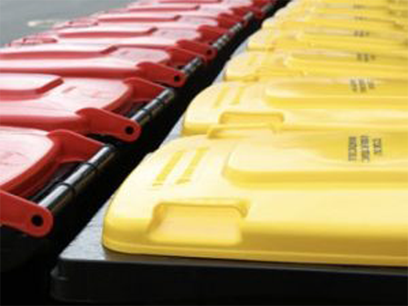
More than half of all landfill waste in metropolitan Adelaide is unrecovered resources that could be recycled simply by using the correct recycling or green organics bin, according to new research.
The recently released East Waste 2019 Household Bin Audit is the most in-depth household bin study undertaken in South Australia.
The audit revealed that it is food waste that goes to expensive landfill and harms the environment. Staggeringly, 75 per cent of food waste still is edible when thrown out.
Researchers sifted and sorted 29 tonnes of material from 2100 bins to complete the audit. East Waste chair Fraser Bell said the audit provides an unprecedented insight into the disposal behaviours of South Australians. It will inform initiatives to influence household disposal habits for significant financial and environmental benefits.
“The findings tell us clearly that diverting food waste from landfill is our greatest opportunity to reduce costs to councils and the community while reducing greenhouse gas emissions,” Bell said.
“If all organics going to landfill were diverted into the green bin, it would save $2.7 million a year across the seven councils served by East Waste. Just 13 per cent of all food organics is correctly binned; the lowest efficiency for any recyclable material.”
Results are concerning
The audit also finds that more than 27 per cent of the contents of a general waste bin for landfill is food waste that can and should be composted. Fruit and vegetables constitute about half of all food waste thrown out, 75 per cent of which is edible.
“These findings are concerning and show that consumer education is needed in a range of food areas such as the difference between ‘best-before’ and ‘use-by’ dates and biodegradable versus compostable packaging,” Bell added.
“Food waste recycling in South Australia is low compared to some interstate councils. Yet, paradoxically, here in South Australia we have two of the nation’s most effective private composting companies, including Wingfield’s Jeffries Group that processes our material.”
East Waste is collaborating with Fight Food Waste Cooperative Research Centre (CRC), the University of Adelaide, Green Industries SA and Rawtec on the WWW (What, Where and Why) of Household Food Waste Behaviour project.
The audit also found a strong case for improved glass recycling. The average East Waste household disposes of more than 20 kilograms of wine bottles a year, with quantities varying between individual council areas, from 7 per cent in the Adelaide Hills to 18.3 per cent in Walkerville. East Waste is a subsidiary of the Adelaide Hills, Burnside, Campbelltown, Mitcham, Norwood, Payneham & St Peters and Prospect, Walkerville and councils.
